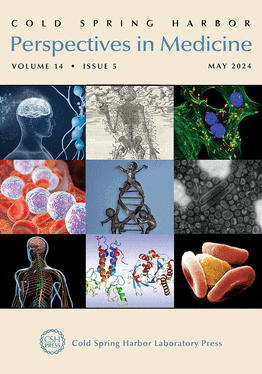前列腺素调节病理情况下的血管生成和淋巴管生成
IF 7.8
2区 医学
Q1 MEDICINE, RESEARCH & EXPERIMENTAL
引用次数: 0
摘要
血管生成是指在原有微血管的基础上形成新的血管,是伤口修复和肿瘤生长的重要组成部分。众所周知,抑制前列腺素生物合成的非甾体类抗炎药物能抑制包括结直肠癌在内的恶性肿瘤的发病率和恶化,还能延缓伤口愈合。然而,其确切机制尚未完全阐明。前列腺素受体基因敲除小鼠的累积结果表明,宿主微环境中的前列腺素 E 型受体信号 EP3 在诱导血管内皮生长因子 A(VEGF-A)的肿瘤血管生成中起着关键作用。此外,在病理环境中,EP 信号通过诱导 VEGF-C/D 也可促进淋巴管生成。这表明 EP 受体在促进体内血管生成和淋巴管生成方面的重要性。类前列腺素在平滑肌收缩和血管活性方面的作用超出了人们通常理解的范围,这两种作用都是在刺激后几秒钟内引起的快速反应。类固醇受体信号转导将成为血管生成和淋巴管生成相关疾病的潜在治疗靶点。本文章由计算机程序翻译,如有差异,请以英文原文为准。
Prostanoids Regulate Angiogenesis and Lymphangiogenesis in Pathological Conditions
Angiogenesis, the formation of new blood vessels from the preexistent microvasculature, is an essential component of wound repair and tumor growth. Nonsteroidal anti-inflammatory drugs that suppress prostanoid biosynthesis are known to suppress the incidence and progression of malignancies including colorectal cancers, and also to delay the wound healing. However, the precise mechanisms are not fully elucidated. Accumulated results obtained from prostanoid receptor knockout mice indicate that a prostaglandin E-type receptor signaling EP3 in the host microenvironment is critical in tumor angiogenesis inducing vascular endothelial growth factor A (VEGF-A). Further, lymphangiogenesis was also enhanced by EP signaling via VEGF-C/D inductions in pathological settings. These indicate the importance of EP receptor to facilitate angiogenesis and lymphangiogenesis in vivo. Prostanoids act beyond their commonly understood activities in smooth muscle contraction and vasoactivity, both of which are quick responses elicited within several seconds on stimulations. Prostanoid receptor signaling will be a potential therapeutic target for disease conditions related to angiogenesis and lymphangiogenesis.
求助全文
通过发布文献求助,成功后即可免费获取论文全文。
去求助
来源期刊

Cold Spring Harbor perspectives in medicine
MEDICINE, RESEARCH & EXPERIMENTAL-
CiteScore
14.30
自引率
1.90%
发文量
44
审稿时长
4-8 weeks
期刊介绍:
Cold Spring Harbor Perspectives in Medicine is a monthly online publication comprising reviews on different aspects of a variety of diseases, covering everything from the molecular and cellular bases of disease to translational medicine and new therapeutic strategies.
Cold Spring Harbor Perspectives in Medicine is thus unmatched in its depth of coverage and represents an essential source where readers can find informed surveys and critical discussion of advances in molecular medicine.
 求助内容:
求助内容: 应助结果提醒方式:
应助结果提醒方式:


